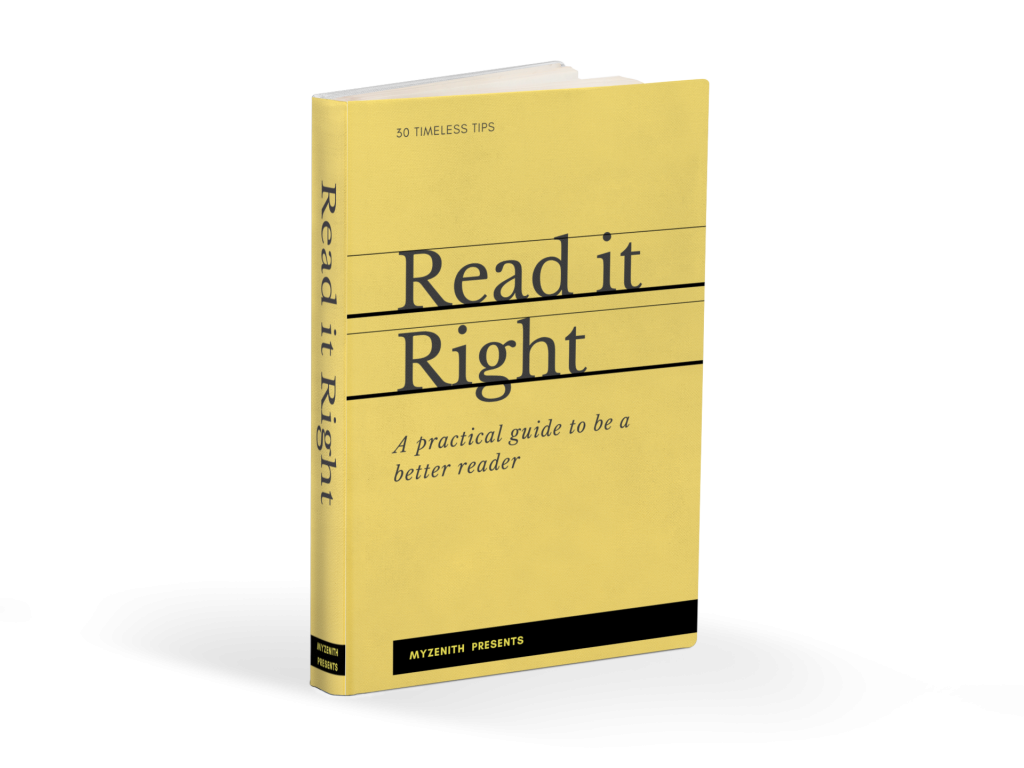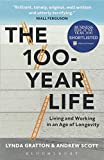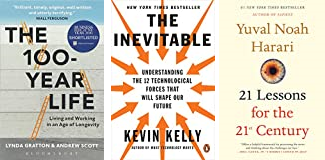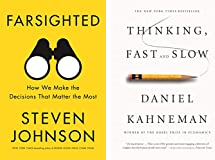The future depends on what we do in the present.
Mahatma Gandhi
A good read is a good reason to read
Most of us read when we are children. We read to learn the basic skills of literacy, to acquire some level of general contextual knowledge, and later specific knowledge about a field we choose to specialize in. The adults around us insist that we learn and read so that we can be “ready” to face the world. And then, one day we leave our educational institutions and the safety of our homes behind, and declare ourselves ready to face the world. For most of us, the time we spend on productive reading decreases dramatically from then on. When it is no longer required of us, other priorities take over and reading gets relegated either to the realm of pleasure activities or to the bottom of a to-do list, as an item that we rarely get to.
In the book The 100-Year Life, professors Lynda Gratton and Andrew Scott talks about a multi-stage life (as opposed to the three-stage life of education, employment and retirement that our grandparents experienced). A child born in 1914 had a 1% probability of living to 100 years old. A child born in 2007 has a 50% chance of living to be 100.
For most of us in between, there is a more than reasonable chance that we will live to more than 90 years old, if not 100. Yet, we are not prepared. Our lifestyles still reflect the three-stage life, where learning and reading are predominant in just the first stage and we expect a sequential, predictable and lockstep path through life stages. This is one example of a profound change that has already happened, but one we haven’t adapted to in response. Many such changes abound – from climate change to urbanization to most technological advances.
Society will eventually catch up and politicians and corporations will adapt policies and job requirements to new realities. But that is unlikely to happen at scale in our lifetime, or to our individual advantage. What’s the alternative, and what has that got to do with reading?
Read for foresight:
The world is full of obvious things which nobody by any chance ever observes.
Sherlock Holmes
None of us have crystal balls or time machines. But that does not mean that knowing the future enough to be prepared is a fool’s errand. We may get the specific dates and specific events wrong, but the general trajectory of human development and future opportunities follows predictable paths, if only we know how to look for it.
Reading for foresight has as much to do with analyzing the past as it has with predicting the future. While the past cannot be changed, our understanding of the past certainly can, and in that also lies a way to predict the future. Understanding the past, its relation to the present and extrapolating to the future is closest to detective work, perhaps a lot more exciting endeavor than reading.
Reading Tip #1: Read like Sherlock Holmes: Peering into the future has many similarities to solving a mystery. Here are the seven strategies of Sherlock Holmes as applied to reading for foresight: Define the question, Approach the question with a blank mind, Learn how to read relevant material, Use logic, Never give up an opportunity to listen while you read (aka close reading), Never underestimate anyone, and Learn how to recognize vital facts from incidental facts. Seeing the future is quite elementary, don’t you see?
You could consider that each book you read is a piece of evidence, and what you glean out of it is a clue to solving the mystery of what the future holds. Exciting! To get your started, here are a list of books that could give you some clues on what the future will bring.
Read to pivot:
Let’s assume you have formed your views on what the future will bring thanks to your good detecting skills. Now comes the hard part – for most of us, acting on the knowledge of the future would mean changes. That’s got nothing to do with what exactly you do now or who you are, but more to do with the fact that the world is changing faster than ever, and whether we accept it or not, we are already living in a multi-stage world.
We are in that exact generation where we were not prepared to live a multi-stage life when we were children, which means it falls on us in our adulthood to acquire the skills to change and adapt. Pivot — I would like to call it, because it is not all that different from a start-up which has discovered that it needs to re-imagine its talents and assets to capture a different opportunity than it had originally intended. Applied to an individual level, it is about how to use your skills, talents and passion to a new area or profession?
Reading Tip #2: Read it when you need it. Reading is best approached when there is a purpose to it, not as a vanity metric to hit a certain number of books in a specified period. It is also helpful to seek out books that answers your questions or help you out in the specific context you are currently in. If you are trying to pitch your new start-up, don’t just read a book on marketing, but rather a book specifically about writing business plans and to approach investors. The more specific you can be, the better. That’s why you should choose your books based on what you need to learn right now, so you can use the information you consume.
You’ll never get anywhere if you go about what-iffing like that.
Roald Dahl
Before any major change, lies a decision. If you are contemplating changes or would like to read up on effective deliberation and decision-making, here are a few relevant recommendations.
The world is always changing – “change is the only constant” is an enduring cliché for a reason. What is relevant now is that crises accelerate change. Contrary to popular thinking, the world doesn’t change dramatically because of a crisis, the change was always afoot. But the crisis forces us to accept it and change ourselves, sooner than we would have liked. Now that we are living through a drastic, pervasive change like none of us have ever experienced, what will you do about it? The concepts here – to develop foresight and pivot (if/when needed) – are hopefully helpful. There are many means to do these, and several of the approaches often need to be used together, but reading is usually the efficient, first and no-regret step that supports other actions.

If you would like to get more tips to be a better reader, download our practical guide – Read It Right. Free for all subscribers!



